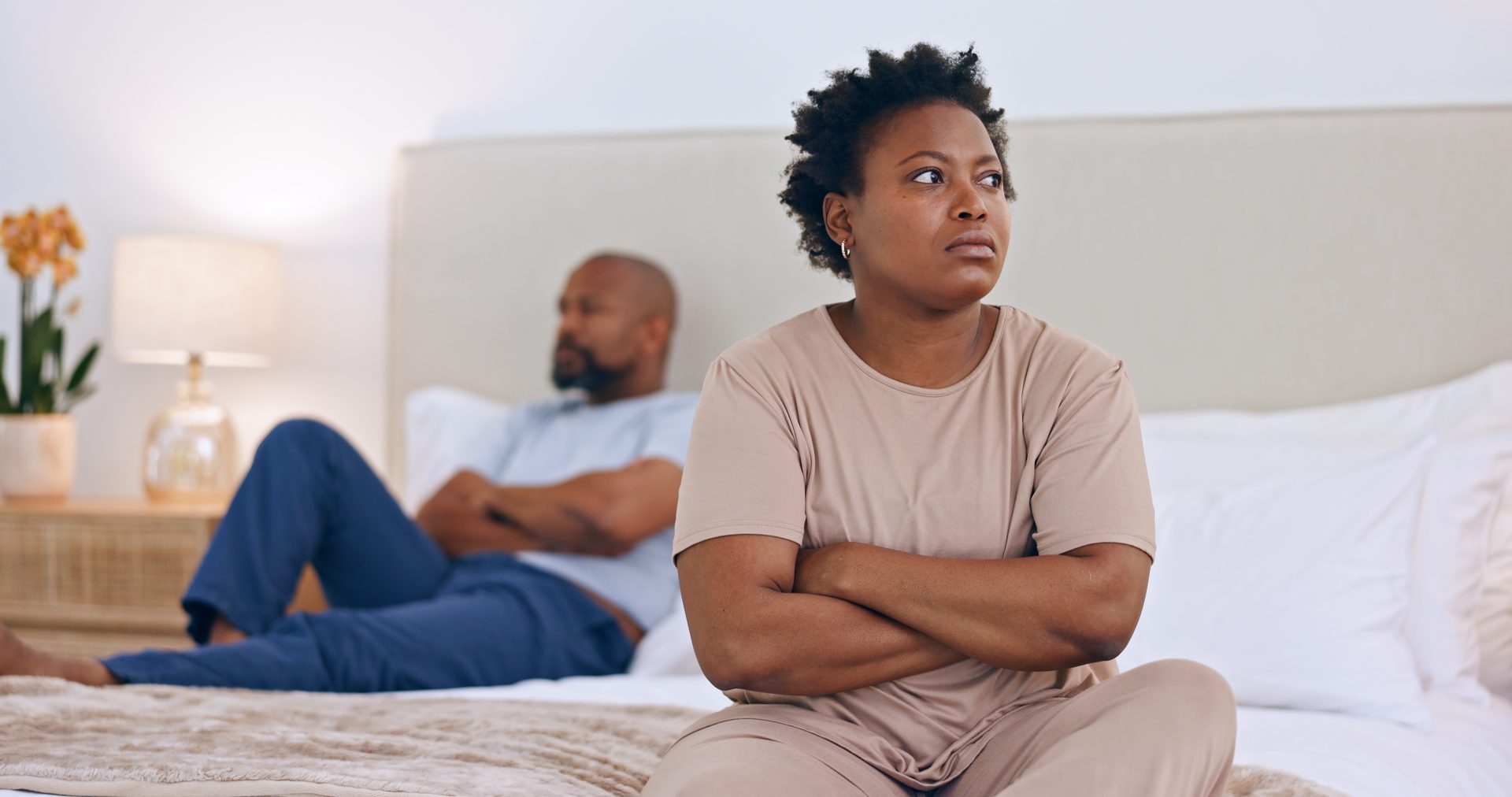Weight fluctuations represent a natural part of life’s journey, yet their impact on romantic relationships often catches couples completely unprepared. When one or both partners experience significant weight changes, the ripple effects extend far beyond physical appearance, infiltrating the emotional foundation of even the strongest relationships in ways that can surprise and devastate loving couples.
The connection between physical self-perception and relationship confidence operates through complex psychological mechanisms that affect everything from intimate moments to everyday interactions. These changes don’t necessarily reflect actual partner attitudes or relationship strength, but rather internal struggles with self-worth that manifest in relationship behaviors and communication patterns.
Understanding how weight gain influences relationship dynamics empowers couples to address these challenges proactively, maintaining emotional intimacy and connection despite physical changes. The goal isn’t to eliminate weight-related concerns but to prevent them from undermining the fundamental trust and affection that sustain healthy partnerships.
1. Bedroom intimacy becomes increasingly avoided
Physical intimacy often represents the first casualty when weight gain affects relationship confidence, as individuals become increasingly self-conscious about their changing bodies during vulnerable moments. The bedroom, once a space of connection and pleasure, can transform into an anxiety-provoking environment where body image concerns overshadow romantic feelings.
Dimmed lighting becomes essential for maintaining any sense of comfort during intimate moments, with some individuals insisting on complete darkness or specific positioning that conceals areas they perceive as problematic. These accommodations can create emotional distance even during physical closeness, as partners focus more on hiding perceived flaws than enjoying shared intimacy.
Spontaneous affection may decrease significantly as individuals feel the need to prepare mentally and physically before any intimate contact. This preparation might include specific clothing choices, timing considerations, or mental rehearsal that transforms once-natural expressions of love into calculated performances designed to minimize vulnerability.
Communication during intimate moments can become strained as individuals worry about their partner’s physical reactions or visual focus. This internal dialogue creates distraction from present-moment connection, often leading to decreased satisfaction and enjoyment for both partners despite their continued love and attraction.
The frequency of intimate encounters often decreases as one partner consistently finds reasons to avoid situations where they feel exposed or vulnerable. These avoidance patterns can create cycles where decreased intimacy leads to further emotional distance and reduced relationship satisfaction.
2. Social situations create unexpected anxiety
Public appearances as a couple can become sources of significant stress when weight gain affects relationship confidence, transforming previously enjoyable social activities into anxiety-provoking challenges. Restaurants, parties, and social gatherings may trigger concerns about appearance, eating behaviors, and perceived judgment from others.
Photo opportunities during social events can create particular distress, with individuals avoiding cameras or insisting on specific positioning and angles to minimize their perceived appearance concerns. This camera avoidance can affect couple photos and family memories, creating gaps in shared documentation of important life moments.
Clothing choices for social events may become increasingly restrictive as individuals search for options that provide comfort and confidence while accommodating physical changes. Shopping for appropriate attire can become stressful and time-consuming, sometimes leading to social event avoidance altogether.
Dancing, physical activities, or other social interactions that highlight the body can become sources of anxiety rather than enjoyment. Previously loved activities may be abandoned or approached with reluctance, affecting the couple’s shared experiences and social connections.
The anticipation of social judgment, whether real or imagined, can create pre-event anxiety that affects mood and relationship interactions for days before social gatherings. This anticipatory stress can strain communication and create tension between partners even when the events themselves proceed without incident.
3. Communication patterns shift toward defensiveness
Conversations about health, appearance, or lifestyle choices can become emotionally charged when weight gain affects relationship confidence, with innocent comments triggering defensive responses that surprise both partners. Previously neutral topics may become conversational landmines that partners learn to avoid, reducing overall communication depth and authenticity.
Compliments from partners may be received with skepticism or rejection, as individuals struggling with body image concerns have difficulty accepting positive feedback about their appearance. This rejection of affection can be particularly hurtful for partners who genuinely find their loved ones attractive regardless of physical changes.
Self-deprecating comments may increase as individuals attempt to address their appearance concerns before others can comment, creating a protective mechanism that actually draws more attention to perceived problems. These negative self-references can become habitual and affect overall relationship mood and positivity.
Discussions about food, exercise, or health-related topics may become tense or completely avoided, limiting important conversations about shared goals, lifestyle choices, and mutual support. This communication restriction can affect decision-making about meals, activities, and health-related choices that impact both partners.
Misinterpretation of partner comments or behaviors may increase as individuals become hypersensitive to perceived criticism or judgment. Innocent observations or suggestions may be received as attacks, creating conflict and misunderstanding where none was intended.
4. Fashion and appearance choices become restrictive
Clothing selection transforms from creative expression to strategic concealment when weight gain affects relationship confidence, with wardrobe choices increasingly focused on hiding perceived problem areas rather than reflecting personal style or preferences. This shift can affect self-expression and comfort in various settings and situations.
Shopping for new clothing becomes an emotionally challenging experience that may be avoided entirely, leading to limited wardrobe options that no longer fit properly or reflect current style preferences. Ill-fitting clothing can actually worsen body image concerns and create additional discomfort throughout daily activities.
Color and pattern choices may become increasingly conservative as individuals avoid anything they believe might draw attention to their changing bodies. This restriction can eliminate previously loved clothing styles and colors that brought joy and confidence, further limiting self-expression opportunities.
Seasonal clothing transitions can create particular challenges as individuals discover that previous favorites no longer fit comfortably or create the desired appearance. These discoveries can trigger emotional responses that affect mood and relationship interactions for extended periods.
Investment in appearance-related items like jewelry, accessories, or beauty products may decrease as individuals feel that such enhancements are pointless given their body image concerns. This reduced self-care can create cycles where decreased attention to appearance actually worsens confidence levels.
5. Exercise and activity participation changes dramatically
Physical activities that couples once enjoyed together may become sources of anxiety or avoidance when weight gain affects relationship confidence, limiting shared experiences and bonding opportunities. Exercise routines, sports, and outdoor activities can trigger self-consciousness about physical performance and appearance.
Gym memberships or fitness classes may be abandoned due to concerns about appearance or physical performance around others, eliminating previously important health and wellness routines. This avoidance can actually worsen physical concerns while reducing opportunities for positive physical experiences.
Swimming, beach activities, or other situations requiring revealing clothing may be completely avoided, affecting vacation choices and recreational activities that the couple previously enjoyed together. These limitations can reduce shared pleasure and adventure in the relationship.
Hiking, dancing, or other physical activities may be approached with anxiety about physical performance or stamina, affecting enjoyment and potentially limiting participation in activities that could actually improve both physical and emotional wellbeing.
The motivation to engage in healthy activities may decrease as individuals become overwhelmed by the gap between their current condition and their fitness goals, creating paralysis rather than motivated action toward improved health and confidence.
6. Eating behaviors become complicated and stressful
Meal planning and dining experiences can become emotionally charged when weight gain affects relationship confidence, with food choices influenced more by guilt and restriction than nutrition and enjoyment. This shift can affect shared meals and social dining experiences that strengthen relationship bonds.
Restaurant dining may become sources of anxiety as individuals worry about food choices, portion sizes, and eating behaviors in public or in front of their partners. This anxiety can reduce enjoyment of previously loved dining experiences and date night activities.
Home cooking and meal preparation may become influenced by restrictive thinking or guilt about food choices, affecting the nutritional quality and enjoyment of shared meals. These changes can impact family traditions and couple bonding activities centered around food preparation and sharing.
Emotional eating patterns may develop or worsen as individuals use food to cope with body image concerns and relationship stress, creating cycles where eating behaviors actually contribute to the physical changes causing distress. This pattern can be particularly difficult to address without professional support.
Hidden eating or secretive food behaviors may develop as individuals attempt to control their eating without partner awareness, creating dishonesty and distance in the relationship. These secretive patterns can actually worsen both physical concerns and relationship trust.
7. Future planning becomes limited by appearance concerns
Long-term relationship goals and plans may be affected when weight gain influences confidence levels, with individuals postponing or avoiding significant events or commitments until they feel more comfortable with their appearance. This postponement can affect relationship progression and shared future planning.
Wedding planning or renewal ceremonies may be delayed as individuals want to achieve specific appearance goals before these significant events, affecting timeline and creating pressure around physical changes that may be difficult to achieve quickly or sustainably.
Vacation planning may become limited to destinations or activities that accommodate appearance concerns, reducing adventure and exploration opportunities that could strengthen relationship bonds and create positive shared memories.
Photography sessions, anniversary celebrations, or other milestone documentation may be avoided or postponed, creating gaps in relationship memory-making and celebration of important moments together.
Career or social opportunities may be declined due to appearance concerns, affecting individual growth and shared financial or social goals that impact the relationship’s future potential and stability.
8. Partner dynamics shift toward compensation patterns
The confident partner in the relationship may begin overcompensating with excessive reassurance or compliments, creating an imbalance where one person becomes responsible for maintaining the other’s emotional stability. This dynamic can create pressure and resentment over time.
Relationship roles may shift as the partner struggling with confidence becomes less likely to initiate activities, make decisions, or take leadership in various aspects of the relationship. This change can affect relationship balance and create frustration for both partners.
Social interactions may become affected as one partner takes on more responsibility for communication and social engagement while the other withdraws due to confidence concerns. This shift can affect the couple’s social connections and shared friendships.
Decision-making processes may become complicated as appearance concerns influence choices about activities, events, and lifestyle decisions that affect both partners. This influence can limit options and create frustration about restrictions that seem unnecessary to the unaffected partner.
The emotional labor in the relationship may become unbalanced as one partner requires significantly more reassurance and support while potentially offering less emotional availability due to internal struggles with confidence and self-worth.
Rebuilding confidence and connection
Recovery from weight-related confidence issues requires patience, understanding, and often professional support to address both physical concerns and their emotional impact on relationships. The process involves rebuilding self-worth while maintaining relationship intimacy and connection.
Communication strategies that focus on emotional needs rather than physical appearance can help couples navigate these challenges while maintaining closeness and understanding. Learning to separate body image concerns from relationship worth becomes crucial for long-term success.
Professional counseling, whether individual or couples-based, can provide tools and strategies for addressing body image concerns while strengthening relationship bonds. These resources can be particularly valuable when confidence issues begin affecting multiple aspects of relationship functioning.
Gradual exposure to previously avoided activities and situations, with partner support and understanding, can help rebuild confidence while creating positive experiences that strengthen relationship bonds and individual self-worth.
The journey toward improved confidence and relationship satisfaction requires commitment from both partners and recognition that physical changes don’t define relationship worth or individual value within loving partnerships.
















